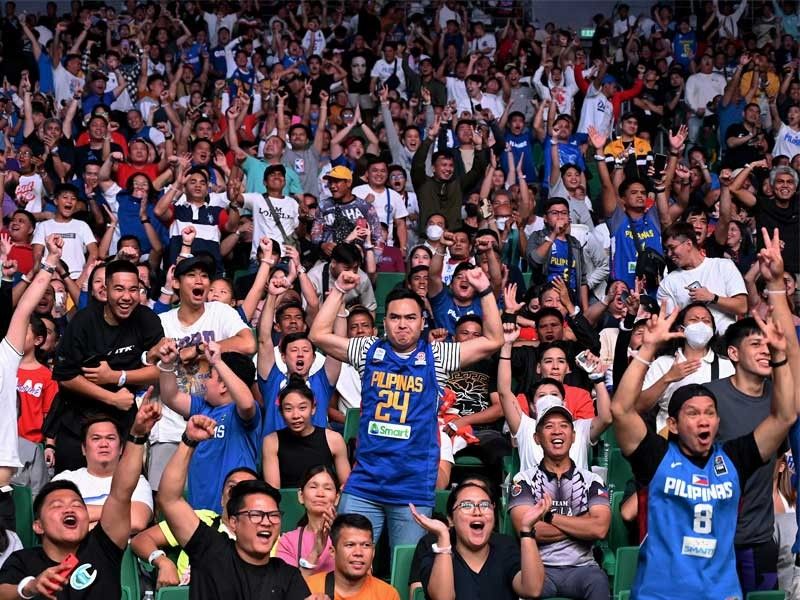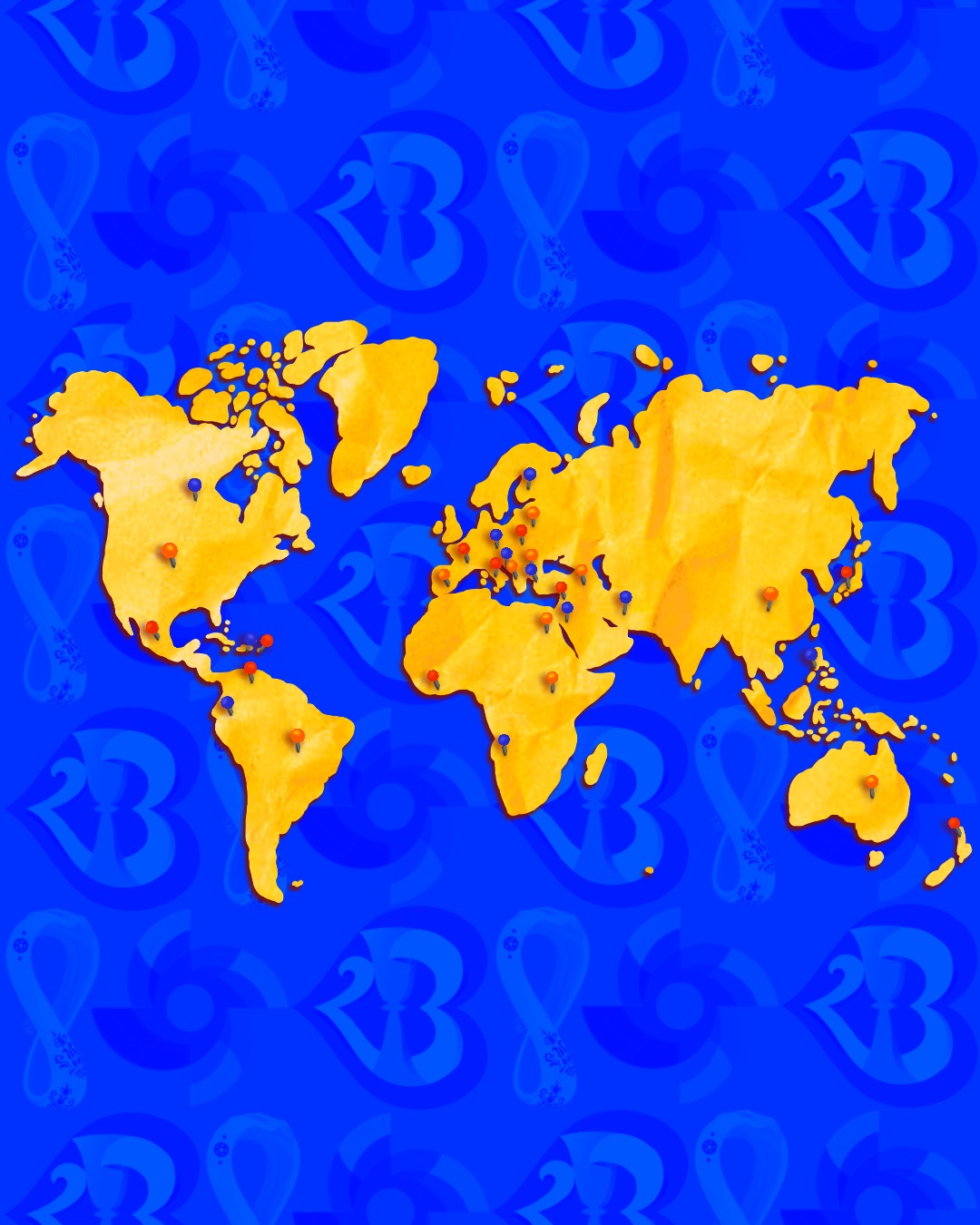Illustration by team illustrator Sakura Siegel.
The FIBA Basketball World Cup is held every four years, with over two dozen countries participating in hopes of capturing the gold medal. While the U.S wins nearly every Olympic Basketball Tournament, that is not the case for the FIBA Basketball World Cup.
This is especially true this year when the United States failed to secure even the Bronze medal during the tournament this past summer. Germany was crowned its first-ever FIBA gold medal after defeating Serbia behind respected NBA point guard and 2023 FIBA MVP Dennis Schröder.
In an overtime thriller, the United States fell to Canada. They were led by NBA Oklahoma City Thunder star, Shai Gilgeous-Alexander, who stepped up during the World Cup to propel Canada to the medal. This was a huge upset, as the United States typically finishes in the top three.
It’s been over two months since then, but the impact of basketball around the globe remains.

“Everyone comes from different cultures and different countries have different points of views of different things. Talking to people, learning about their country, the history of their countries, [their experiences]. It makes you open up so much and see things. That helps you,” Serbian player and NBA center Nikola Vučević told FIBA.
As opposed to the NBA, MLB and NFL, international competitions–like the International Basketball Federation (FIBA), World Baseball Classic (WBC), FIFA World Cup and even the Olympics–engage multiple countries, with fans around the world hoping that their home country can take home the gold.
FIBA’s inaugural season was in 1950, where Argentina defeated the United States to capture the first FIBA gold medal.
The World Cup began with 10 participating teams, which has now ballooned to 32 teams participating in the cup. The tournament is held every four years, with rare exceptions being five years in between cups.
With 32 countries qualifying for the tournament, fans are more likely to tune in globally seeing that their country is participating. After all, humans “are neurologically wired to engage in the emotions of those we like and feel close to”; or, simply put, fans identify with and feel closeness to their nationality.
World Cups expand their respective sports’ reach far beyond what they would normally be if the sport was confined within a single country.
A good example of this is Los Angeles Lakers’ player Austin Reaves receiving a huge ovation when he was introduced pre-game in the Philippines. If not for his participation on the USA Basketball Team, these fans would not have been able to see such a heralded player play in their home country.
Austin Reaves sends a message of appreciation to Filipino fans 💌🤗
READ: https://t.co/8gDKl15Zmh#FIBAWC x #WinForUSA pic.twitter.com/GQhXr9CtWZ
— One Sports (@OneSportsPHL) August 27, 2023
The Philippines hosted the World Cup for the second time ever, which was huge for the country. Their love for basketball is deeply embedded in their history; basketball courts are littered in city alleyways and abandoned fields where kids play in their flip-flops. Bringing these global stars to their country allowed exposure to the sport that they would normally not have.
A huge player with Filipino heritage is Utah Jazz guard Jordan Clarkson.
He won the 2021 Sixth Man of the Year and also played with the Cleveland Cavaliers and Los Angeles Lakers alongside global superstars in LeBron James and Kobe Bryant, who are both especially loved in the Pacific Island. There’s that unforgettable moment of Bryant doing the traditional Tinikling dance when he visited in 1998.
The Dominican Republic FIBA team spoiled the party for Philippines when New Jersey native and NBA star Karl-Anthony Towns knocked off Clarkson and Gilas Pilipinas.
The best players around the globe participate in these tournaments, with a lot of NBA players suiting up for their home countries, and not only representing the U.S. Doing this allows for more parity within the cup, which is shown by the U.S. not being able to finish in the top 3 spots.
The winner of this year, Germany, was led by NBA players Schröder, Franz Wagner and Mo Wagner.
The Silver and Bronze medalist teams, Serbia and Canada, also sported multiple NBA players.
Also notable was that both Germany and Canada finished in the top three for the first time in their countries’ history in the tournament, while Serbia did so for the second time.
Having these top players in the world represent their home countries allows for an exciting and fun tournament that engages fans globally.
As Vučević said, “… basketball brings you together.”


